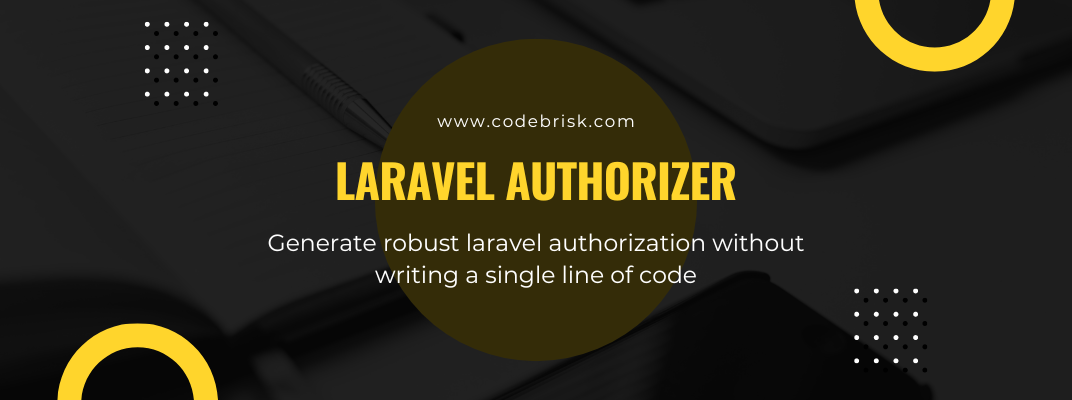Blog Detail
01
Sep
arrow_back Generate Robust Laravel Authorization Without Writing Code
Laravel Authorization is a fantastic package that helps you to quickly create strong policy authorization logic in your Laravel application with minimal effort. In most cases, the defaults will be just enough and all you’d need to do is authorize.
Installation
You can install the package via composer:
composer require flixtechs-labs/laravel-authorizer
You can publish the config file with:
php artisan vendor:publish --tag="laravel-authorizer-config"
This is the contents of the published config file:
return [
'permissions' => [
'create',
'update',
'delete',
'view all',
'view',
'force delete',
'restore',
],
];
Setup
This package depends on the spatie/laravel-permission package. It’s installed automatically when you install this package.
To set up the package all you need to do is run the following command:
php artisan authorizer:setup
If your project is ready you can generate the permissions on a setup by adding the –permissions option:
php artisan authorizer:setup --permissions
You can also generate the policies on a setup by adding the --policies option:
php artisan authorizer:setup --policies
Usage
This package generates a batteries included policy skeleton. You just have to generate a policy and authorize it in your controllers.
Generate a policy for one model
php artisan authorizer:policies:generate Post --model=Post
This will generate a PostPolicy in the App\Policies\ namespace.
Now all you just need to do is authorize the user in your controllers:
<?php
namespace App\Controllers;
use App\Models\Post;
public function __construct()
{
$this->authorizeResource(Post::class, 'post');
}
Or authorize per action
public function update(UpdatePostRequest $request, Post $post)
{
$this->authorize('update', $post);
}
Generating policies for all models
php artisan authorizer:policies:generate
This will generate policies for all models in your project.
Generating permissions for one model
php artisan authorizer:permissions:generate --model=Post
This will generate all the CRUD permissions for one specific model. You can add additional permission to be generated by adding them to the config file in config/authorizer.php
Or you can just generate for all the models
php artisan authorizer:generate:permissions
For more details, you can visit Github.
Published at : 01-09-2022
Rizwan Aslam
I am a highly results-driven professional with 12+ years of collective experience in the grounds of web application development especially in laravel, native android application development in java, and desktop application development in the dot net framework. Now managing a team of expert developers at Codebrisk.

Launch project
